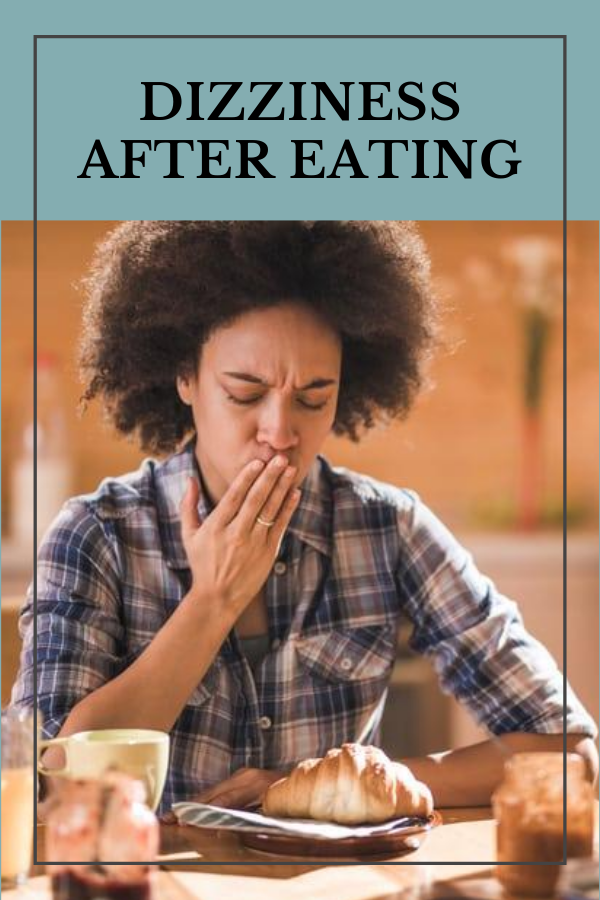The feeling of dizziness varies in each person. There are some who undergo lightheaded or woozy, some may feel nothing unusual but loses their balance standing. Spinning can make you feel dizzy, but frequent dizziness might not be a usual dilemma. Dizziness after eating, lying down, or sitting may be an implication of a more serious disease and may need an immediate medical attention.
Here’s a list of some known causes of dizziness after eating:
Labyrinthitis – is an inflammation of the labyrinth, an inner ear structure enclosed in thick bone close to the base of your skull. Labyrinth is composed of two parts, the cochlea which sends information regarding sounds to the brain and the vestibule which sends information concerning the position and head movement. When the vestibule is affected by labyrinthitis it sends faulty information to the brain.
Atherosclerosis – it is the hardening and narrowing of the arteries called atherosclerosis which occurs when fatty substances like cholesterol build up in the walls of arteries, forming a plaque. When the narrowing becomes severe, it is hard for the blood to flow through them and can possibly break causing the blood to clot inside the artery.
Gastritis – is an inflammation of the lining of the stomach commonly caused by excessive intake of alcohol, infection of bacteria known as Helicobacter pylori, bile reflux, stress, and other immune disorders.
Heart Disease – is used to describe an array of diseases that involves your heart such as coronary artery disease, heart rhythm problems, heart infections, or congenital heart defects. Some symptoms include chest pain, shortness of breath, lightheadedness, dizziness, or fainting.
Thyroid Gland Disorders – is a disorder that involves an abnormal production of thyroid hormones. When the thyroid gland produces too much thyroid hormones thus becoming overactive, it is referred to Hyperthyroidism. When the thyroid gland produces too little thyroid hormone thus becoming underactive, it is referred to Hypothyroidism. Common symptoms include Easy fatigue,
exhaustion and sometimes dizziness.
Renal Disorders – usually refers to any disease of the kidneys. Common causes include diabetes, high blood pressure, liver diseases, and heart diseases. Effects and symptoms could be frequent urinating, especially at night or nocturia, swelling of the legs, fatigue and weakness, loss of appetite, nausea and vomiting, dizziness, and shortness of breath.
Medications – dizziness is often related to the use of certain drugs or medications. Some examples ofthese drugs are Antihypertensive medicines which are used to control high blood pressure, a side effect of Antidepressant drugs, ACE inhibitors (Angiotensin Converting Enzyme) such as Lisinopril which is used to control high blood pressure and congestive heart failure. Sedatives are habit-forming drugs that can result in serious withdrawal symptoms such as dizziness, nausea, and seizures.
Psychological Disorders – stress, anxiety, depression may be a cause or an end result of dizziness.According to studies 50% of people who shows up in clinics for dizziness have psychological disorder, mainly anxiety.
Postprandial Hypotension – can lead to dizziness after eating or falling after a meal. The cause of postprandial hypotension is not fully known but it is thought that it is caused by a pooling of blood in the abdominal organs during digestion. During digestion, the intestine needs a huge amount of blood. When the blood flows to the intestine, the rate of the heart increases and blood vessels narrow to maintain the pressure of the blood. However, for some people the heart rate does not increase and the blood vessel does not constrict thus resulting in falling of blood pressure. It can also cause chest pain, disturb vision, or nausea.
Some foods are associated with dizziness such as:
Salty foods
A high amount of sodium in the body can increase your risk for heart disease and kidney failure and brings additional threat. Foods that contain high levels of sodium includes canned soups and vegetables, frozen meals, pretzels, French fries, crackers, tomato sauce, cold cuts, hot dogs, bacon and processed cheese
Sugary foods
Sugar can lead to high blood pressure and increase in blood sugar level which can cause dizziness. When the blood sugar is increase the blood are prolonged to get to the brain. Foods containing high amount of sugar are ice cream, honey, chocolate, dates, maple syrup, cream, jams and jellies, juice, cookies, cakes, donuts, candy, and soft drinks.
Fatty foods
Fatty foods can also trigger high blood pressure and results in vertigo and causes its common symptom which is dizziness. Fats can be found in Fried foods, ice cream, cheese, shortening, milk, mayonnaise, eggs, butter, burgers, French fries, pizza, cookies, meat and meat products. It is important to remember that fats are categorized into Good fats (unsaturated fat) and Bad fats (saturated fats and Trans fat). Good fats are essential to promote healthy cell function, for brain development, and production of cholesterol in the liver. An increased level of fats can lead to more complications.
Alcohol
Alcohol absorbs in the inner ear that is mainly responsible for producing balance. It bothers the ability to balance yourself which can cause vertigo.
Enjoyed Dizziness After Eating? Share it with your friends so they too can follow the Superfoodsliving journey.
Share on Pinterest
